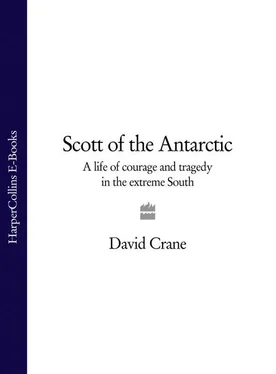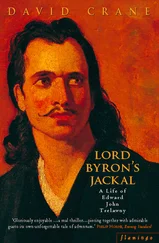There are few things that more poignantly signal the remoteness of Dean Inge’s age from our own, because while nothing is more inevitable or healthier than historical revisionism, what has happened to Scott’s reputation requires some other label. It might seem odd from this distance that neo-Georgian England should find in a Darwin-carrying agnostic of Scott’s cast the type of Christian sacrifice, but the historical process that has shrunk the rich, complex and deeply human set of associations that once clustered round his story into an allegory of arrogance, selfishness and moral stupidity is every bit as extraordinary. How has a life that was once seen as a long struggle of duty been transformed into the embodiment of self-interested calculation? How has the name of the meticulous and ‘cautious explorer’ his men followed become synonymous with reckless waste? How has the son and husband his mother and wife described become the type of English emotional inadequacy? By what process does a tenderness for animal life become a pathological disorder that belongs to the psychology of military incompetence? What is it that stops a whole age hearing in the cadences, the measure and the sentiment of Scott’s last harrowing appeal to the public, the words of the dying Hamlet?
The most tempting answer is suggested by the cultural and political overtones implicit in Trevor Griffiths’ use of the word ‘Englishness’, because if Scott was once celebrated as the incarnation of everything an Englishman should be, he is now damned as the sad embodiment of everything he actually was. It is very hard to imagine that Scott’s reputation would have taken the battering it has if he had been Irish or Australian, but in his real and perceived ‘Englishness’ the hero of St Paul’s has answered the revisionist needs of a post-colonial age as perfectly as General Gordon once did those of Bloomsbury.
But if the historiography of the Heroic Age has always been as political as the expeditions themselves – polar archives bear witness to that – it would be too easy to take this as the full answer. From the early 1960s historians and biographers were constantly exploiting one or other partisan line, yet buried beneath their different cultural or partisan agenda lies a more fundamental lack of sympathy for Scott’s age that has nothing to do with nationality or bias.
In many ways, of course, the simple truth is that we know more about Scott’s weaknesses and the failures of his leadership than did the congregation at St Paul’s, but it is not that we see him differently from the way they did, but that that we see him the same , and instinctively do not like it. As an age we no longer hear what A.C. Bradley called the ‘Othello Music’ of high eloquence, no longer, mercifully, believe it. At the time of Scott’s death men and women clutched at the proof he offered that the qualities that had once made Britain great were not extinct, but with the knowledge of what lay only two years ahead – the hidebound failure of Jutland, the hopeless heroism and obscene waste of the Western Front – the ideals of duty, self-sacrifice, discipline, patriotism and hierarchy associated with his tragedy take on a different and more sinister colouring. This is too seminal and too valid an insight to give up, but somewhere between the Scott of St Paul’s and the Scott of modern myth lies a profoundly more complex and interesting figure. Of all the explorers of the Heroic Age he is the most interesting, and if Scott had never gone to the Pole, and we had never heard of him, his life, with its alternating rhythms of obscurity and fame, of duty and ambition, of success and failure and the corrosive temptations of them both, would still be the stuff of the English novel from George Eliot to George Gissing.
It was Scott’s fate, however, to be plucked from the pages of a domestic novel and placed, quite literally, between the covers of an A.E.W. Mason tale of heroic adventure. It is the moral of Gray’s ‘Elegy’ in reverse: a life destined for Stoke Poges rerouted to St Paul’s. This is its fascination. It would be moving enough in any context, but set it against its Antarctic background, against a world where every hairline crack becomes a fissure, every inadequacy is ruthlessly exposed, every motive publicly interrogated and every resource of moral and physical courage challenged, and one has the unique appeal of Scott’s story.
‘To me, and perhaps to you,’ wrote Apsley Cherry-Garrard, one of the party who found the frozen bodies of Scott and his companions, ‘the interest in this story is the men, and it is the spirit of the men.’ Of no one is this more true than of Scott himself. It is this that makes a rounded sense of his whole life and personality so crucial to any understanding of the successes and failures of his two great expeditions. History can take one so far; science can answer so many questions. But those ultimate questions that still swirl about Scott’s last tent can be resolved by neither. They belong to a sense of Scott the man and to the imagination in a way that lifts his story out of the esoterica of polar history and places it in the mainstream of human experience.
TWO Childhood and Dartmouth
There was a time, and not so long ago either, when gentle people were so gentle that the males could not with the countenance of their families enter upon any profession other than the Army, the Navy, or the Church.
Gilbert Cannan, The Road to Come (1913)
TWO YEARS BEFORE the outbreak of the First World War, at just about the same time that Scott was refining the concept of gentility for a whole age, a Royal Naval officer confidently told an Admiralty committee, set up to explore the question of commissions from the lower deck, that it took three generations to make a gentleman .
If anyone was searching for a clue to the simultaneous social durability and decline of Britain as a great industrial power, they could do a lot worse than settle on that. For many a European the only surprise about the formula would have been that the process could be so rapid; but it has always been Britain’s genius and curse to dangle the hopes of gentility before an aspirant population, absorbing and anaesthetising the nation’s energies and talents into the comforting and inclusive orbit of respectability encompassed by that word ‘gentleman’.
There is a case, anyway, for arguing that only pedantry, snobbery or family romance could ask for a longer genealogical perspective, and certainly none is needed for Scott’s family. His early biographers liked to detect a likeness to the ‘great Sir Walter’ in his features, but for all the family traditions of Border raiders, Buccleuch connections and Jacobites hanged at York, the only family history that had any relevance to Scott himself begins with his grandfather, Robert. *
The son of a schoolteacher who had come to the West Country from France, where the family had gone after the ’ 45, Robert Scott was born in 1784, and after four years ‘in a subordinate capacity’ was promoted in 1806 to purser in the Royal Navy. At the end of the Napoleonic Wars he was serving – prophetically enough in the light of his grandson’s future career – in HMS Erebus , and within five years had amassed enough from prize money or graft to buy with his brother Edward a brewery in Plymouth for £4, 782. Robert Scott had married in 1816, and in the same year that the two brothers acquired the Hoegate Brewery took the lease from Sir John Aubyn on a house at Stoke Damerel on the outskirts of Devonport. The house was more a Regency cottage than anything grander when Robert bought it, but by the time he had finished adding to it, ‘Outlands’ had become the outward symbol of the Scotts’ ambitions, a country gentleman’s residence in miniature, complete with servants, outbuildings, shrubberies, paddocks, orchard, governesses, nurses, pets, peacock and stream.
Читать дальше












![John Bruce - The Lettsomian Lectures on Diseases and Disorders of the Heart and Arteries in Middle and Advanced Life [1900-1901]](/books/749387/john-bruce-the-lettsomian-lectures-on-diseases-and-disorders-of-the-heart-and-arteries-in-middle-and-advanced-life-1900-1901-thumb.webp)